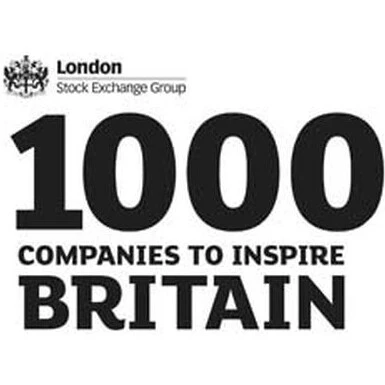Since 2016, Brexit has been one of the most controversial political votes in British history, with “Remainers” and “Leavers” fighting to be heard. Will leaving the EU lead to local opportunities for British businesses or limit international trade? Will it save the UK money or cost more to cover the EU’s vital funding?
To cut through the noise, we sat down with Brexit expert and corporate consultant, Professor John Ryan. He works with Brexit Partners to prepare businesses for a post-Brexit Britain, using leading economic strategies to protect assets and drive growth.
Hear John’s insight first-hand, in our latest exclusive interview:
Q: Five or ten years from now, what will be the impact of Brexit and COVID-19?
“This is a very tricky question, five to 10 years. But as Adam Marshall, Director General of the British Chambers of Commerce, has mentioned, there's so much complexity; it's like an onion.
“The more you peel, the more you cry. In terms of the Brexit and Covid impact, it's going to edge the UK towards a double-dip recession. Inflation will go up; unemployment is already at around a four year high and may get worse. Retail suffered a weak December sales growth number, which is always a good month, but because of Covid and Brexit, it didn't go very well for them.
“And the budget deficit is getting worse because state spending is rising, and tax receipts are falling. House prices did rise, some elements of that were people in cities were moving to outer-city areas and also people were trying to move into houses with gardens. In the short term, that was good news for house owners.
“At the moment, Brexit is causing all kinds of difficulties for trading. So, this is an ongoing problem that will have a detrimental effect on the economy.”
Q: What should concern private & public sector organisations about the post-Brexit environment?
“If you did not have a team and plan before Brexit came into being on the 1st of January 2021, that's something you'd still need to think about doing. It has all been a bit of a rush in terms of the government putting information up on the website, but you need to develop a post-Brexit policy because this is going to be ongoing.
“There's going to be deadlines where a state of grace on some of the trading activities are going to be coming up, and that means things are moving forward on a slower process in terms of making this all work from a UK perspective. Once those deadlines come, everything gets much harder.
“You and your firm must set the strategic direction, a framework for allocation of responsibilities within a Brexit team, to deal with future business-critical issues that emerge and respond to issues that have actually arisen now that we're out, from the Brexit deal and leaving the single market and Customs Union.
“And you have to look at your financial performance from year one to five. You need to look at your risk assessment from a wider economic and operational shift that's going to occur post-Brexit, and you may need to mitigate your contractual exposures. Also, examine some of the market impacts and the opportunities of becoming a takeover target. What is crucial here is that you have your contingency plan up to date and respond to these new outcomes.”
Q: How must companies prepare for post-Brexit?
“Organise.
“Have a Brexit task force to capture insights across your business. Inform your workforce, your board and stakeholders and wider business of possible implications of Brexit. Analyse potential impacts and changes that your business would like to drive, capitalise on the opportunities generated by uncertainty and change. Take steps to mitigate potential risks. Develop a detailed plan to move quickly as clarity emerges.
“What is really important is to monitor developments in London, the British Government at Brussels, what the EU will be doing, and elsewhere. Some of your other markets may be in Germany, maybe in the Netherlands, Ireland, outside the EU. Engage with Government in the UK, EU and beyond, as well as other key stakeholders.
“The Brexit health checklist provides a starting point for your analysis and applies to any business:
“One, business scope. Two, regulation. Three, people. Four, tax and duties. Five, trade outside the EU. Six, customers. Seven, contracts. Eight, corporate and finance. Nine, intellectual property. Ten, data. 11, subsidies. And 12, litigation and insolvency.
“Through workshops, you can review and model key strategic, commercial and operational impacts on business development. Brexit contingency planning and potential risk scenarios are very important.”
Book Professor John Ryan
Contact the Champions Speakers agency to provisionally enquire about Prof. John Ryan for your event today. Simply call a booking agent on 0207 1010 553 or email us at [email protected] for more information.









